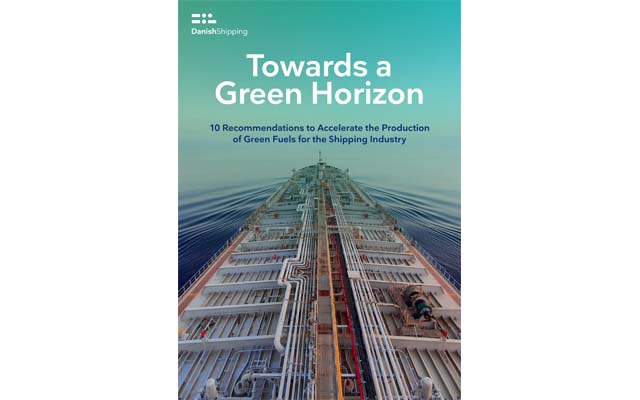Danske Rederier (Danish Shipping) has launched its recommendations following a summit in Copenhagen attended by representatives from shipping companies, fuel producers, authorities, the Minister for Industry, Business and Financial Affairs, and others.
The conclusion was that a joint effort and political focus are essential to ensure that the industry’s ambitious climate goals are met. A significant part of the solution must be found at the European level. Danish shipping companies are ready to invest in new vessels and green fuels, yet they expect to predominantly operate on green fuels only after 2035. This was emphasised by the largest Danish shipping companies in a recent survey conducted by Danske Rederier.
Why? A lack of green fuels. Large investments are needed across the entire value chain—from renewable energy and green fuel producers to shipping companies that currently lack the necessary green fuels to power their vessels. Additionally, international climate regulations for shipping are required to create stronger incentives for green operations across industry. This is why Danske Rederier recently convened a discussion about the urgent situation. At the same time, Danske Rederier urged all stakeholders, particularly the Danish government, to prioritise this agenda at European level and bring the issue to the negotiating table in the EU.
Anne H Steffensen, CEO Danske Rederier, said: “We face a critical situation in our hopes of achieving our green ambition of climate-neutral shipping by 2050. We simply do not have the luxury of waiting much longer for more affordable and accessible alternatives to fossil fuels. We urgently need much larger volumes of green fuels to power our ships. Every link in the chain understands the gravity of the situation and is ready to act. Now, we must collectively find ways to ensure that good intentions translate into real action.”
Danske Rederier has launched a document 10 Recommendations to Accelerate the Production of Green Fuels for the Shipping Industry. Among the recommendations are a diplomatic push for ambitious global regulations, financial support schemes in both Denmark and the EU for the shipping sector’s green transition, the need for strategic partnerships in green fuel production, and the crucial expansion of renewable energy.
Steffensen continued: “The shipping sector accounts for 3% of global CO₂ emissions. If we do not ramp up green fuel production, we simply cannot achieve a green transition—let alone comply with the regulations already in place. Furthermore, there is a significant risk of becoming critically dependent on China, which is far ahead of the EU in green fuel production, much like in the solar and wind industries.”
Achieving these goals requires massive investments throughout the value chain and collaboration between industries and authorities at both national and European levels.
Danish Shipping’s 10 Recommendations to Accelerate the Production of Green Fuels for the Shipping Industry can be downloaded here.



